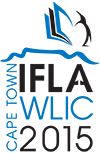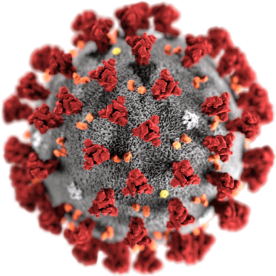Report for the Avraham Reis IFLA Annual Meeting Grant 2015
Recipient: Jaime Friel Blanck, Clinical Informationist, Welch Medical Library, Johns Hopkins University, Baltimore, MD
The 81st International Federation of Library Associations (IFLA) World Library and Information Conference (WLIC) was held in Cape Town, South Africa from August 15-21st, 2015 at the Cape Town International Convention Center. IFLA is a wonderful combination of representatives from all types of libraries offering attendees a wider perspective of issues and solutions outside of their own specialty. The conference started off with the Opening Session featuring an African storyteller, the Opening Address by the current IFLA president, Sinikka Sipila, and welcoming remarks by the Deputy President of South Africa, the Honourable Mr. Cyril Ramphosa. The Keynote was presented by Dr. Rob Adam, Director Designate of Square Kilometre Array (SKA), about the goals of the SKA project to build the world's largest telescope capable of scanning the universe for frequency signals and astronomical data. The program is an international effort to build large satellite fields in Australia and South Africa, approximately one square kilometer in size, as well as developing the computational ability to analyze the massive amount of data collected. The Opening Session was topped off with a charming and enthusiastic performance by The Mzansi Youth Choir of Soweto.
Sunday night, Michelle Kraft, current President of the Medical Library Association, hosted a dinner for MLA members at the South African restaurant Den Anker. This was an opportunity to connect with other MLA members is a relaxed social setting. I was able to meet Sarah Hayman, a librarian from Flinders University in Australia who had two very interesting papers at the conference that I was lucky enough to attend. Both papers spoke to different projects she contributes to in her role at CareSearch and Flinders Filters, a part of Flinders University. There, Hayman works to develop validated search filters to speed reliable access to evidence-based information from PubMed. The filters that she and her colleagues have developed can be found at: http://www.flinders.edu.au/clinical-change/research/flinders-filters/search-filters/search-filters_home.cfm. At the dinner I also met Lisa Travis, a medical librarian at Woodruff Health Sciences Center Library at Emory University. She informally shared a tool she has created that collects and annotates interactive tutorials on a range of topics for medical students.
The Health and Biosciences Libraries partnered with the School Libraries section to offer the session "Well-Being: School Libraries and Health Libraries Working for Access, Development and Transformation". This session featured papers that highlighted important partnership potential for health sciences librarians with school and/or public librarians. The papers titled "Stronger Mental Health for Children and Adolescents in the Library" documented the impact of providing age appropriate books on mental health and emotional health topics on children attending a public library. Also presented during this session was the paper "Promoting Public Access to Health Information: Experiences of the Association for Health Information and Libraries in Africa (AHILA)-Tanzania Chapter" which documented the extensive efforts of health sciences librarians in providing outreach to community health workers and public librarians to train them on how to find and access consumer level health information. The goal of their work was to strengthen communities by empowering individuals to locate nutritional and basic health information to increase their own personal health, thereby creating a healthier community overall. The health sciences librarians were able to connect with an impressive 15 information professionals to provide training as well as producing 55 health information brochures for distribution at public libraries and by community health workers.
The second session sponsored by the Health and Biosciences Libraries section, "Career-long Learning for the Health Information Professional: Education, Training and Retooling for the Changing Health Environment" featured presentations focused on the evolving educational needs of health sciences librarians. In their paper "Educating the Health Librarians in Africa Today", librarians from the University of Kabianga, Kenya compared the competencies and skills required for health sciences librarians with current curricula of library schools. Kinengyere's presentation "Librarians' Involvement In Evidence-Based Medical Practice and Health Policy-Making" discussed the increased role of African librarians in the creation of systematic reviews based on evidence relevant to African populations. This group of librarians described the training they received and their subsequent work with the Africa Centre of Systematic Reviews and Knowledge Translation. This session demonstrates the ongoing need of knowledge sharing and cross-training between librarians from multiple institutions to meet the changing educational and professional needs of health librarians.





